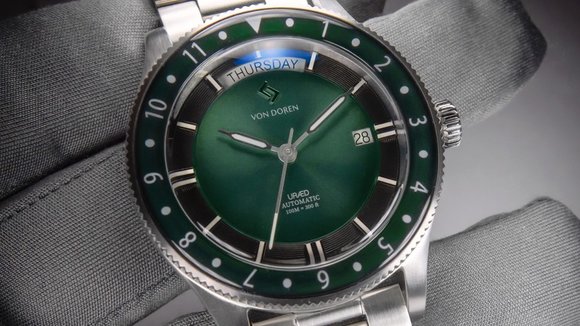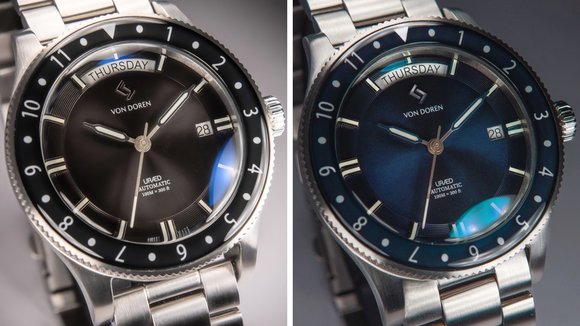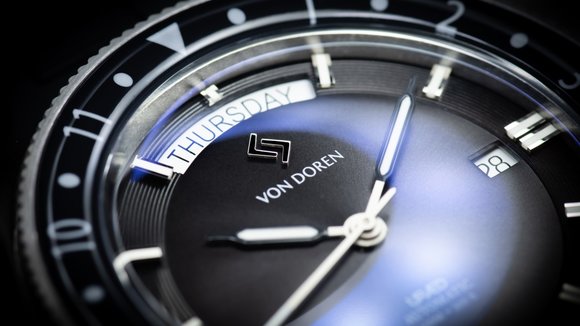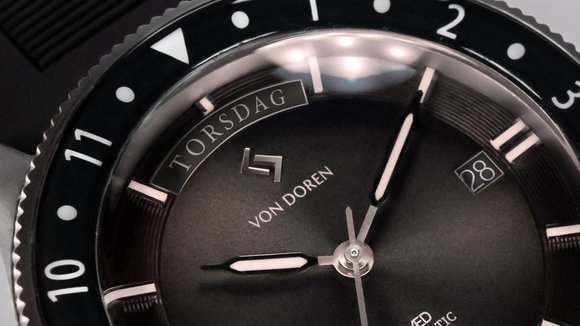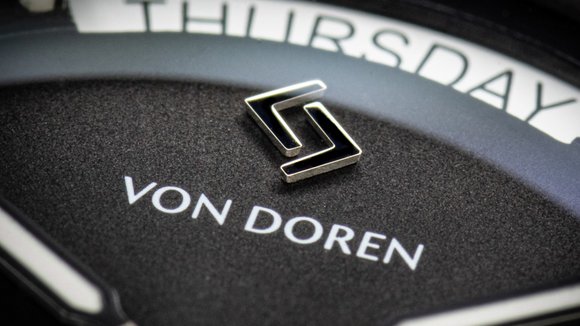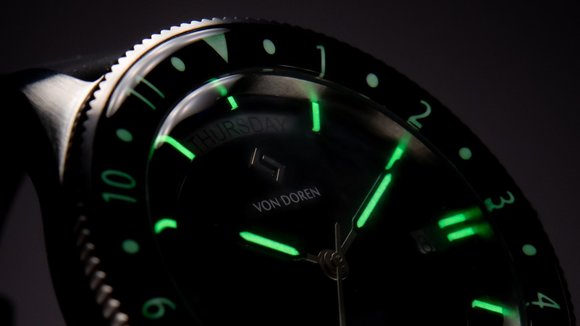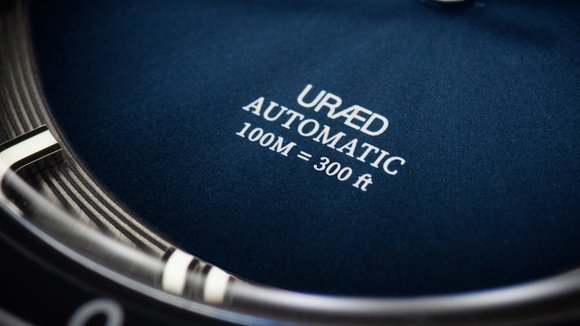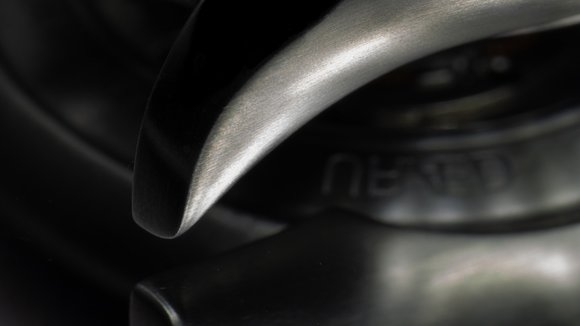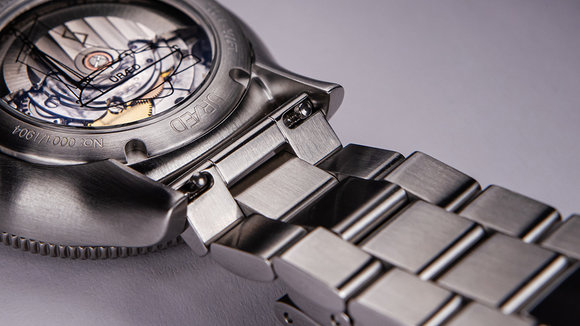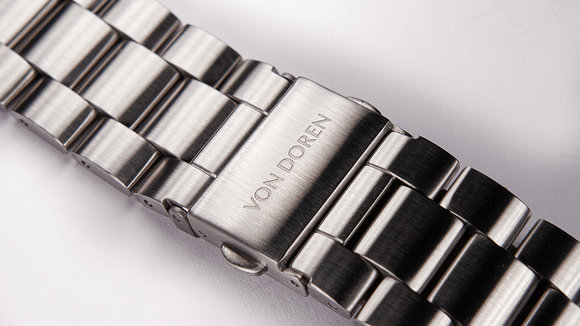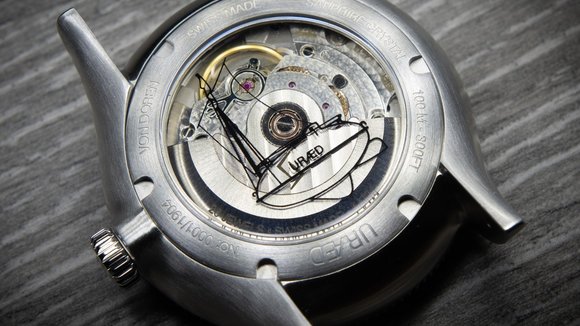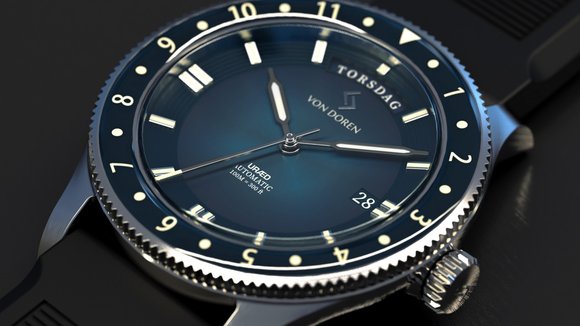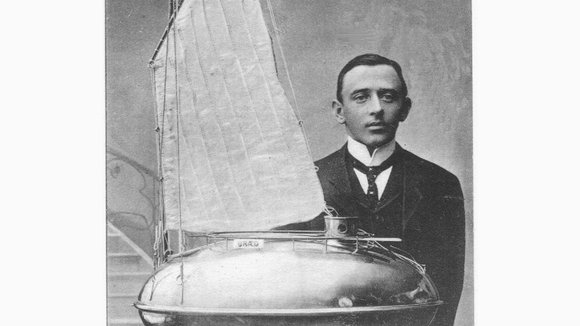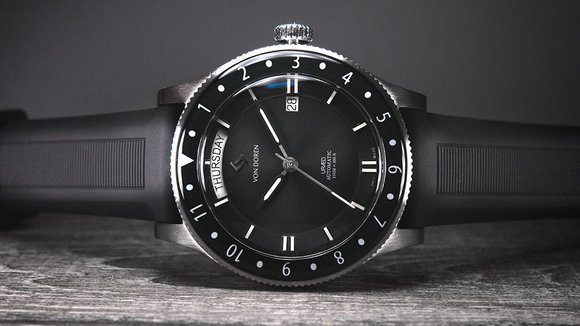1/14
The URÆD wristwatch pays tribute to the creator of the world’s first closed lifeboat
If you haven’t heard of the story of Mr. Ole Brude, sit down and grab a cup of hot chocolate, because it’s pretty incredible. Back in August 1904, a Norwegian by the name of Ole Brude designed a lifeboat no larger than the size of a minivan. The unique feature about this lifeboat, however, was that unlike most boats in 1904, this one was enclosed, and shaped like an egg. Brude, perhaps fueled by eccentricity and hope, decided to take this van-sized boat on its maiden journey from Norway to America. It took him and his 3 other companions nearly 5 months, but they managed to make it to Gloucester in Northern Boston. Brude and his co-sailors were lauded as heroes and even got to meet President Roosevelt in the White House. The lifeboat’s egg-shaped enclosed design was celebrated as revolutionary, but strangely didn’t become a standard until the 70s. It, however, became a symbol of fearlessness and a strong resolve, which coincidentally was the very name of Brude’s boat in his native tongue… the URÆD.
Such stories of unabashed guts, gallantry, and sheer optimism are well documented through history, and the URÆD watch honors Brude and his team of fearless men. Designed by Norway-based brand Von Doren, the URÆD watch (pronounced “URAED” if you’re curious), the watch features a an Art-Noveau-inspired aesthetic taken from Brude’s hometown of Ålesund, on the West Coast of Norway and comes with a 120-click rotating bezel sitting around a double-domed sapphire crystal that quite resembles the curved egg-shaped design of the URÆD. The dial is characterized by a satin metallic finish, Superluminova markings that glow in the dark, and not one, but two windows that show the date as well as the day. Von Doren offers a choice between having the days in English or in Norwegian… Fact: the Norwegian days of the week are named after Norse gods. Thursday or Torsdag, as you would have probably guessed by now, owes its name to Thor.
Flip the watch over and it features an exhibition-style sapphire glass window that lets you look in and see the watch’s Swiss-made STP 4-13 self-winding automatic movement. The sapphire glass on the back even comes with artwork of the URÆD boat as a tribute. The URÆD comes with a 3-link metal strap as well as a silicone band-strap… and just like the boat itself, the watch can take bravely on water too, with a water-resistance of up to 300 feet (100 meters)!
Designers: Øyvind Von Doren Asbjørnsen, Bai Daniel Øgård Kanu & Fredrik Bostad Olsen
($758 off).
Designed in Norway, the URÆD was inspired by the Norwegian hero Ole Brude who in 1904 sailed across the Atlantic Ocean, from Norway to USA in a self-designed lifeboat. His ideas have saved thousands of lives and are still doing so today.
of each language (English or Norwegian days in day window) and available in three different colors: Green Sea, Atlantic Blue and Lava.
day window is white, and the day is shown in black text.
day window matches the color of the dial, and the day is shown in white text.
Applied logo and hour markers.
Swiss Super-LumiNova® BGW9.
URÆD features unique design elements inspired by the Art Nouveau style of Brude’s hometown Alesund.
The brushed and polished case of URÆD is rounded alike contemporary watches from Ole Brude’s time.
A tracing of the lifeboat is found on the caseback’s sapphire crystal. The bracelet is easily changed with the double Quick-Release.
High quality three solid link bracelet with fitted end-links.
Ø 40 mm. Thickness 13.4mm 46.2 mm lugs to lugs. Diver screwed in case-back with 6 notches.
Automatic Swiss Made STP 4-13 self-winding movement. 26 Jewels, 28 800 vibrations 4Hz.
Day, Date, Hacking Seconds, Hand Winding, Outer Day Wheel, Quick Date Correction, Quick Day Correction.
Double domed bell-shape sapphire crystal with 5 AR coating inside. Flat sapphire crystal on case back.
Brushed stainless steel. Screwed in crown.
44 hours.
Assembled by hand.
Of English or Norwegian days in day window.
120 clicks bi-directional bezel. Sapphire crystal.
Swiss Super-LumiNova® BGW9
Delivered with both Silicone rubber strap and high quality 3 solid link bracelet with deployment buckle. Double lug holes. The bracelet is delivered with fitted end-links (not shown on photos of prototype bracelet).
20mm.
100m = 300ft
–
is the day of the Moon. “Måne” is a Norse god, and the brother of “Sol”. The gods did not like that Måne’s father Mundilfare named him after the moon. Therefore they sentenced Måne to drag the moon across the sky every night.
–
is named after Tyr, the son of Odin and the god of War. Tuesdays were considered the best day for battles.
–
is named after the Allfather, Odin. Odin was the wisest and most powerful of all the gods. After the Norse mythology was replaced by Christianity, it was hard for the Christian priests to accept that one of the days was named after a pagan god. They tried to rename the day “Midtuke” which means “Middle of week”. This was unsuccessful, however.
–
is named after Tor (Thor), perhaps the most famous Norse god. This was the most sacred of all the days. Important meetings and assemblies should preferably begin at Thursdays. Thursdays were also believed to be the most powerful day for magic.
–
is the day of Frigg and Frøya. They were goddesses of love and faith – Friday was the day of love.
–
is a modernization of Laugardagr which means “Washing day”. Saturday was traditionally the correct day for ritualistic cleaning ceremonies.
–
is the day of the Sun, and traditionally the first day of the week. “Sol” was Måne’s sister and was named after the sun. Just like with Måne, the gods did not approve of her father’s choice of name and thus sentenced her to pull the real sun across the sky every day.
The Norwegian Ole Brude worked as a deckhand from an early age, but the ship where he worked was wrecked under his first voyage. He saw how the wooden lifeboats were smashed to smithereens against the rocks, and this was where he got an idea that would save countless lives across the world.
The young Brude designed a revolutionary lifeboat way ahead of his time; A closed lifeboat made of steel, shaped like an egg. To prove that closed lifeboats were the future Brude decided to sail from Ålesund, straight across the Atlantic Ocean, and end the journey in Boston.
The voyage became a huge success despite severe storms and hurricanes, and the crew was celebrated as heroes. Ole Brude even received an audience with President Roosevelt.
This status was however short-lived, and closed lifeboats did not become the standard before the ‘70s. The originator never received the recognition he deserved, even though his construction kept four grown men safe for five months at sea.
The team has been heavily inspired by Brude’s courage, and they are proud to present their tribute: Von Doren – URÆD.
($758 off). Hurry, only 121/200 left. Over $470,000 raised!
发布于2020-10-22
设计师
Øyvind Von Doren Asbjørnsen, Bai Daniel Øgård Kanu & Fredrik Bostad Olsen
颜色
相关推荐
